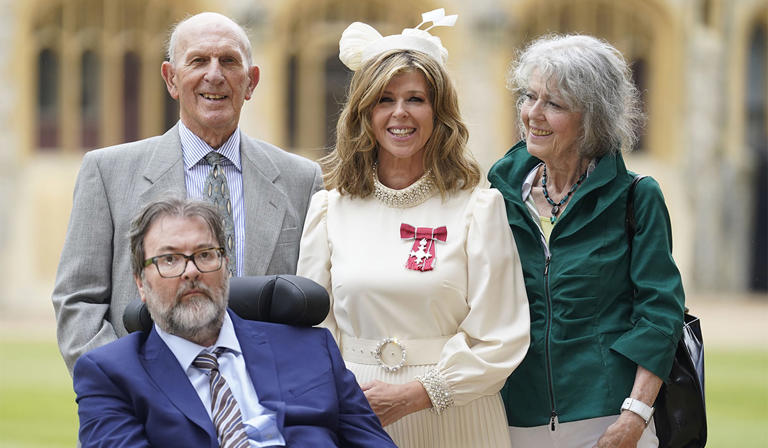Kate Garraway in Need of Surgery After Neglecting Health During Derek Draper’s Illness
Kate Garraway, the well-known TV presenter and journalist, is currently facing the possibility of surgery as a result of her declining health, which she attributes to the challenges of being a caregiver for her husband, Derek Draper. Derek’s battle with COVID-19 has not only taken a toll on him but has also significantly impacted Kate’s physical and mental well-being. This article explores Kate’s journey through her husband’s illness and her ongoing struggles with health, grief, and self-care.
The Emotional Toll of Caregiving
Kate Garraway’s life changed dramatically when her husband, Derek Draper, fell severely ill due to COVID-19. For an extended period, Kate devoted herself entirely to caring for Derek, often at the expense of her own health. The emotional burden of being a caregiver can be overwhelming, and Kate’s experience is a testament to the struggles many face in similar situations. During countless sleepless nights, she has recounted waking up in a panic, enduring anxiety over whether she managed his medication correctly or if she had done enough to ease his discomfort.
Despite the immense love and devotion she poured into her role as a caregiver, this experience carved out time for self-reflection, often revealing deep-seated fears and unresolved grief. While she grapples with feelings of guilt and heartache, she also expresses a bittersweet sense of relief that Derek is no longer dependent on her care, highlighting the complex emotions that caregivers frequently experience.
Health Consequences for Caregivers
The selfless dedication that often defines caregivers frequently leads to neglect of their own health and well-being. In the wake of Derek’s illness, Kate allowed her own health to deteriorate, resulting in a worsening autoimmune thyroid condition. This reminder that caregivers must prioritize their own needs has become increasingly prominent in discussions surrounding mental health and caregiving.
Kate’s situation exemplifies a widespread issue: countless caregivers find their physical health suffers as they pour all their energy into caring for loved ones. Chronic stress, anxiety, and grief can manifest in various ways, leading to long-term health complications. As Kate faces the potential need for surgery due to her postponed medical needs, she stresses the importance of monitoring one’s health, especially during times of prolonged stress.
Navigating Grief and Moving Forward
In light of her husband’s passing, Kate has begun to reflect on the duality of grief and parenting. With two children, Billy and Darcy, depending on her, Kate feels a deep sense of responsibility to navigate her journey of sorrow while maintaining stability for her family. She emphasizes the importance of seeking help and recognizing that self-care is not a luxury but a necessity during difficult times.
Through her public discussions about grief and loss, Kate has inspired many to openly address their feelings, demonstrating that grieving is a personal and often complex journey. She acknowledges that while her grief is profound, focusing on her children helps her find purpose in the aftermath of loss. Kate is beginning to learn that finding a balance between honoring her grief and being present for her children is essential for both her well-being and their emotional health.
Conclusion
Kate Garraway’s journey emphasizes the integral ties between caregiving, health, and grief. As she faces the realities of her own health challenges, her story serves as a poignant reminder for all caregivers to prioritize self-care and to seek support. Caregiving can be incredibly rewarding, but it is also vital to recognize the toll it can take on one’s health. If you or someone you know is navigating similar challenges, consider reaching out for help and remember to take time for your self-care. Your well-being is just as important.




